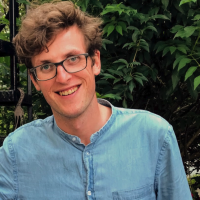
Robin McKenna (University of Liverpool)
Salle DS-1950
Pavillon J.-A. De Sève, 320 rue Sainte-Catherine Est
Montréal
Le vendredi 8 novembre 2024, de 10h00 à 12h00, Robin McKenna (University of Liverpool) offrira une conférence intitulée « Doing Your Own (Patient Activist) Research », organisée par le Groupe de recherche interuniversitaire sur la normativité (GRIN).
L’événement se déroulera dans la salle DS-1950 au Pavillon J.-A. De Sève, à l’Université du Québec à Montréal (UQÀM), située au 320 rue Sainte-Catherine Est. Il sera également possible d’assister à l’événement par Zoom.
Cette conférence porte sur le travail en cours de son auteur. Si vous souhaitez obtenir une copie de l’article en question, veuillez écrire à grin.normativity@gmail.com.
Résumé
The slogan “Do Your Own Research” (DYOR) is often invoked by people who are distrustful, even downright sceptical, of recognized expert authorities. While this slogan may serve various rhetorical purposes, it also expresses an ethic of inquiry that valorises independent thinking and rejects uncritical deference to recognized experts. This paper is a qualified defence of this ethic of inquiry in one of the central contexts in which it might seem attractive. I use several case studies of patient activist groups to argue that these groups often engage in valuable independent research that advances biomedical knowledge. In doing so they demonstrate the value of “lay expertise” and the epistemic as well as political necessity of not simply deferring to recognized experts. I also give some reasons why patient activist groups often produce valuable biomedical knowledge: they are examples of what I call “research collectives”. Research collectives are research communities that differ from the traditional research communities we find in universities and research institutes in that their members typically lack formal relevant scientific credentials and training. But they are similar in that they have internal structures—training procedures, norms of discussion, venues for holding discussions—that facilitate the production of knowledge. I finish by suggesting that future research into the differences and similarities between research collectives and traditional research communities is required.



